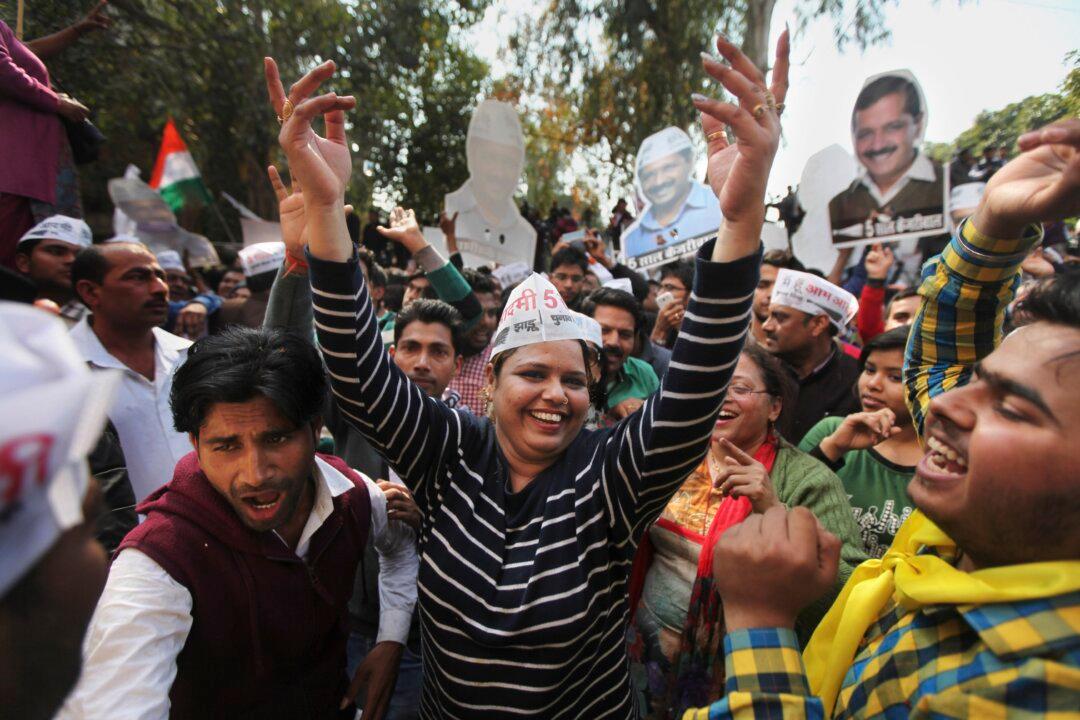NEW DELHI—Eight months after a historic victory in the national elections, India’s Prime Minister Narendra Modi’s party faced its most embarrassing defeat in recent times. The Bharatiya Janata Party (BJP) lost by a landslide to anti-corruption crusader and a new entrant to Indian politics, Arvind Khejriwal, in the Delhi elections.
Barely two years old, Khejriwal’s Aam Admi Party, or the Common People’s Party, won 67 out of 70 seats in the Delhi assembly on Tuesday. It’s set to form the new government on Saturday.
Surya Narayan Mishra, a professor of political science at Utkal University, in explaining the win, said “Modi has been in power eight months and there’s already arrogance of power.”
According to Mishra, sixty percent of the people in Delhi are common people, and Kejriwal reached out to them with promises of cheaper electricity and free water.
Kejriwal, a former tax officer who rose to the limelight as an anti-corruption crusader, served as Delhi’s chief minister for 49 days exactly a year ago. He resigned frustrated by obstacles faced in the way of an anti-corruption bill.





